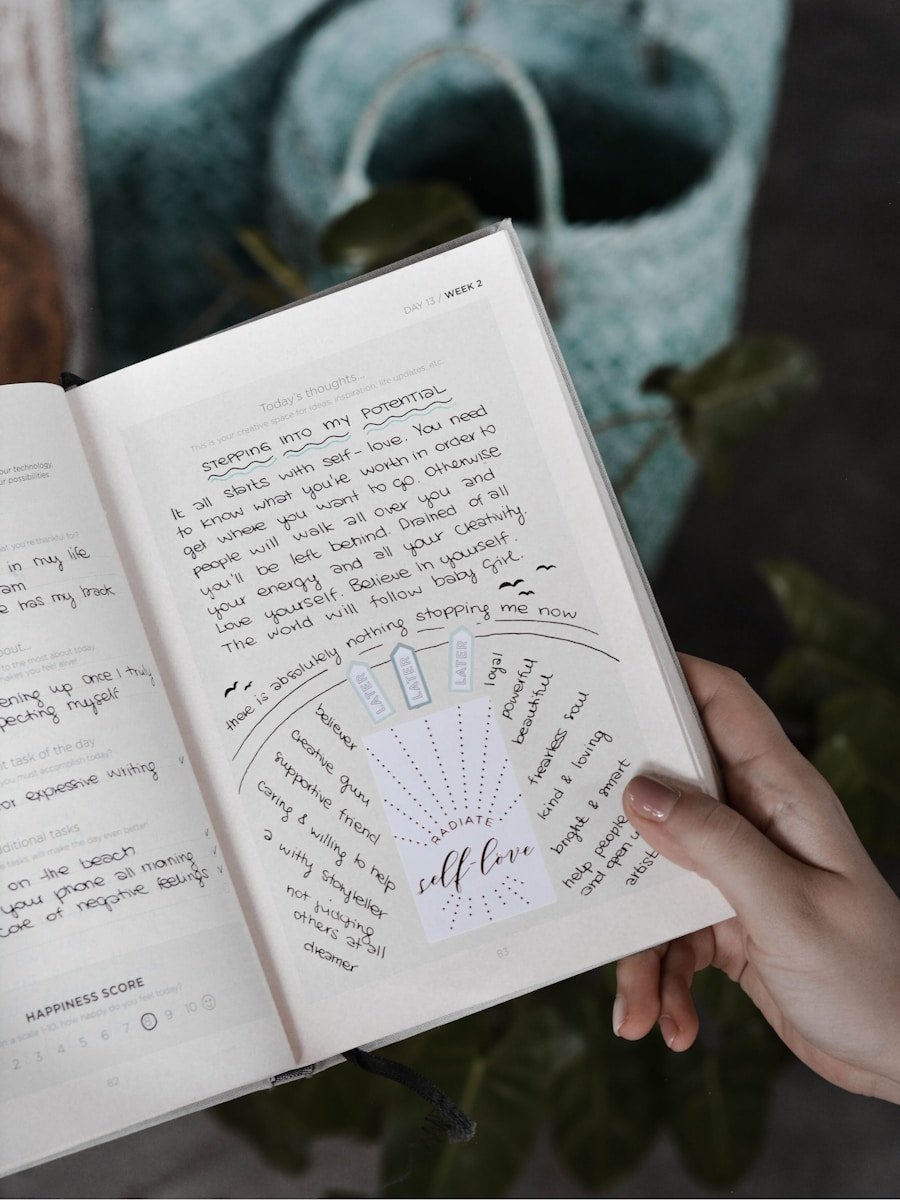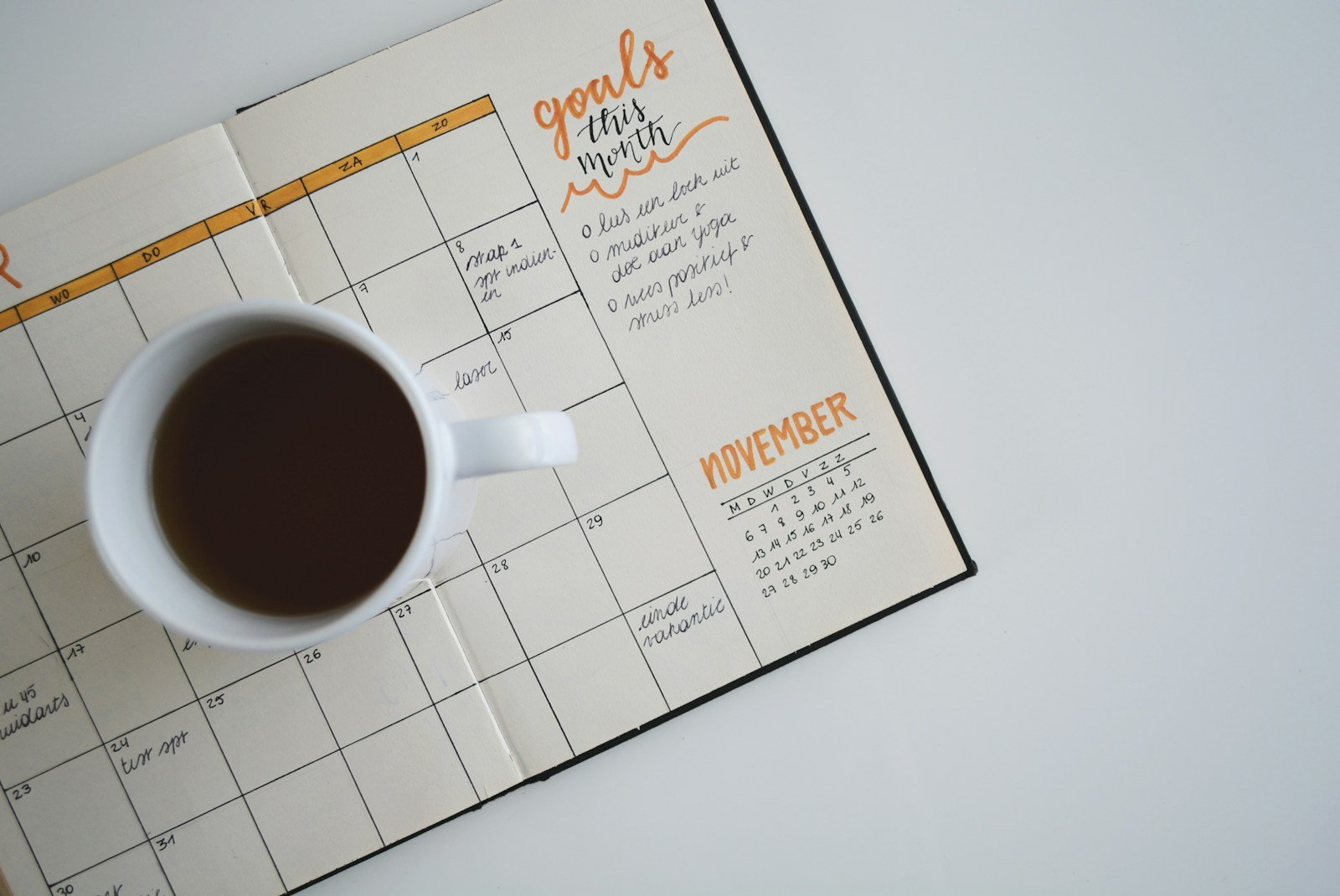History on Journaling
The practice of journaling has been embraced by individuals across cultures and throughout history. From ancient philosophers like Marcus Aurelius to literary giants like Virginia Woolf and Anais Nin, many have found solace and insight in the act of recording their thoughts, experiences, and emotions on paper.
In the modern era, journaling has evolved into a powerful tool for self-reflection, personal growth, and emotional well-being, embraced by individuals from all walks of life. With the advent of digital technology, journaling has also taken on new forms, with various apps and platforms offering convenient and innovative ways to capture thoughts and experiences. From the traditional bound notebook to sleek digital interfaces, journaling has become an accessible practice for anyone seeking to delve deeper into their inner world and foster self-understanding.
Throughout history, journals have served as mirrors into the lives and minds of remarkable individuals, offering a glimpse into their innermost thoughts, struggles, and triumphs. The diaries of notable figures like Anne Frank, Samuel Pepys, and Frida Kahlo have become cultural treasures, providing insight into their personal journeys and the historical contexts in which they lived. These timeless accounts remind us of the power of journaling to capture the human experience in all its complexity and richness.
Why is it Personally Important to the Reader?
Journaling can be a profoundly personal and transformative practice, offering a unique opportunity for self-exploration and growth. By setting aside dedicated time to reflect and record your thoughts, you can gain a deeper understanding of your inner world, your motivations, and your emotional landscape. This self-awareness can be a catalyst for positive change, helping you identify areas for personal growth and guiding you towards a more authentic and fulfilling life.
Moreover, journaling can serve as a safe haven, a space where you can express your deepest vulnerabilities and fears without judgment or censorship. In doing so, you may find relief from the weight of unprocessed emotions, reducing stress and anxiety levels, and cultivating a greater sense of emotional well-being. By giving voice to your innermost thoughts and feelings, you can begin to process and integrate them, leading to a more balanced and harmonious state of mind.
Furthermore, journaling can be a powerful tool for self-discovery, allowing you to explore your values, beliefs, and aspirations in a profound way. By documenting your experiences and reflecting on your choices, you can gain clarity on what truly matters to you and align your actions with your authentic self. This process of self-discovery can be liberating, empowering you to live a life that resonates with your core values and passions.

15 Benefits of Journaling
1. Emotional Processing
Journaling can help individuals process and understand their emotions more effectively, leading to better emotional regulation and overall well-being. By putting thoughts and feelings onto paper, individuals can gain clarity and perspective on their emotional experiences, allowing them to manage and cope with their emotions in a healthier way. This can be especially valuable during times of stress, grief, or major life transitions, as journaling provides a safe outlet for exploring and working through complex emotions.
2. Improved Memory and Recall
Writing down thoughts and experiences can enhance memory and recall, making it easier to remember important details and events. Journaling serves as a personal record, capturing moments, insights, and reflections that might otherwise be forgotten over time. This can be particularly valuable for individuals who struggle with memory or want to document their personal growth journey. By revisiting past journal entries, individuals can gain a deeper appreciation for their progress and personal development over time.
3. Increased Self-Awareness
By reflecting on thoughts, feelings, and behaviors, journaling can foster greater self-awareness and self-understanding. As individuals document their experiences and explore their inner world through writing, they may uncover patterns, motives, and underlying beliefs that shape their actions and decisions. This heightened self-awareness can lead to personal growth and positive change, as individuals become more attuned to their strengths, weaknesses, and areas for improvement.
4. Reduced Anxiety and Stress
The act of writing can serve as a release valve for pent-up emotions, helping to alleviate anxiety and stress levels. Journaling provides a safe outlet for expressing worries, fears, and frustrations, allowing individuals to process and release these emotions in a healthy manner. This cathartic release can promote a sense of calm and emotional well-being, making it easier to navigate life’s challenges with a more balanced perspective.
5. Improved Communication Skills
Journaling can help individuals articulate their thoughts and feelings more clearly, which can translate into better communication skills in personal and professional settings. By practicing the art of self-expression through writing, individuals can develop their ability to convey ideas and emotions effectively, leading to more meaningful connections and understanding with others. This improved communication can strengthen relationships, enhance teamwork, and facilitate better problem-solving and collaboration.
6. Enhanced Problem-Solving
Writing about challenges and problems can provide new perspectives and insights, leading to more effective problem-solving strategies. Journaling allows individuals to explore different angles, brainstorm solutions, and gain a deeper understanding of the issues they face. By externalizing their thoughts on paper, individuals may discover new patterns or connections that can lead to innovative solutions. Additionally, the act of writing can help individuals clarify their thoughts, making it easier to identify root causes and develop comprehensive strategies for addressing challenges.
7. Increased Gratitude
Journaling about positive experiences and blessings can cultivate a mindset of gratitude and appreciation. By consciously reflecting on the good things in life, individuals can shift their focus away from negative thoughts and cultivate a more positive outlook. Gratitude journaling has been shown to improve overall well-being and life satisfaction, as it fosters a sense of abundance and helps individuals appreciate the present moment, rather than dwelling on past regrets or future anxieties.

8. Better Sleep
Writing before bedtime can help clear the mind and reduce racing thoughts, promoting better sleep quality. By offloading worries and concerns onto paper, individuals can experience a sense of release and relaxation, making it easier to fall asleep and enjoy a more restful night’s sleep. This improved sleep can have far-reaching benefits, including increased energy levels, better focus, and improved physical and mental health.
9. Boosted Motivation
Journaling can serve as a source of motivation by recording goals, accomplishments, and progress, inspiring individuals to keep moving forward. By tracking their journey and reflecting on their achievements, individuals can gain a sense of pride and encouragement, fueling their determination to continue pursuing their aspirations. Additionally, journaling can help individuals identify and overcome obstacles, as well as celebrate small wins along the way, reinforcing a growth mindset and fostering resilience.
10. Improved Time Management
By reflecting on how time is spent and setting priorities, journaling can aid in better time management and productivity. Individuals can use their journals to plan their days, track their tasks, and evaluate their use of time, allowing them to identify areas for improvement and make more efficient use of their time. This increased self-awareness and intentionality can lead to greater focus, reduced procrastination, and a heightened sense of accomplishment.
11. Creativity and Idea Generation
Journaling can be a powerful tool for unlocking creativity and generating new ideas. By providing a space for free-flowing thought and exploration, journaling can help individuals tap into their imagination and innate creativity. Writing prompts, mind-mapping exercises, and stream-of-consciousness writing can all facilitate the generation of novel ideas, insights, and creative solutions. This can be particularly valuable for writers, artists, entrepreneurs, and anyone seeking to cultivate their creative potential.
12. Personal Growth and Self-Discovery
Journaling can serve as a powerful catalyst for personal growth and self-discovery. By documenting their thoughts, experiences, and emotions over time, individuals can gain valuable insights into their strengths, weaknesses, values, and aspirations. This self-awareness can guide individuals towards a deeper understanding of who they are and what truly matters to them, fostering a sense of authenticity and purpose. Additionally, journaling can help individuals track their progress, celebrate milestones, and identify areas for further growth and development.
13. Stress Relief and Trauma Processing
Journaling can provide a therapeutic outlet for processing and releasing stress, trauma, and difficult emotions. By putting thoughts and feelings onto paper, individuals can externalize their experiences and gain a sense of distance and perspective. This can be particularly valuable for those dealing with traumatic events, grief, or other challenging life circumstances. Journaling can serve as a safe space for exploring and working through these emotions, potentially leading to healing and personal growth.
14. Improved Decision-Making
By examining thoughts and emotions surrounding different choices, journaling can help individuals make more informed and well-reasoned decisions. Through the act of writing, individuals can clarify their goals, weigh potential outcomes, and gain a deeper understanding of their personal values and priorities. This self-reflection can lead to more mindful and intentional decision-making, reducing the likelihood of impulsive or regrettable choices.
15. Legacy and Memoir Creation
Journaling can serve as a record of personal experiences, thoughts, and emotions, providing a valuable legacy for future generations. By documenting their lives and perspectives, individuals can create a rich tapestry of stories, insights, and memories that can be shared with loved ones or preserved for posterity. Journals can serve as powerful memoirs, offering a glimpse into the inner world of the writer and capturing the essence of their lived experiences.
How can Someone Implement it into Their Life?
Incorporating journaling into your daily routine can be a transformative experience. First, choose a journal or notebook that appeals to you, whether it’s a traditional bound book or a digital app like Day One. Dedicate a specific time each day, whether it’s in the morning, evening, or during a break, to focus on journaling without distractions. Consistency is key, as regular practice will help you develop a habit and reap the full benefits of journaling.
Create a comfortable space where you can write without interruptions, whether it’s a cozy corner at home or a peaceful outdoor setting. Surround yourself with elements that inspire and energize you, such as calming music, aromatic candles, or personal mementos that hold special meaning. This dedicated environment can help you enter a state of mindfulness and self-reflection, making it easier to tap into your innermost thoughts and emotions.

FAQ
How often should I journal?
There is no set rule for how often to journal. Some individuals find daily journaling beneficial, while others prefer to write a few times a week or whenever they feel inspired. Consistency is key, but the frequency should be tailored to your needs and preferences. The most important factor is to make journaling a regular practice and prioritize it as part of your self-care routine.
What should I write about in my journal?
The beauty of journaling lies in its versatility. You can write about your thoughts, feelings, experiences, dreams, goals, challenges, or anything that comes to mind. Some common journaling styles include free-writing, gratitude journaling, dream journaling, and themed journaling (e.g., travel journaling, self-discovery, or personal growth). The possibilities are endless, and the content should reflect your unique interests and needs.
Is it okay to skip journaling on some days?
Absolutely! Journaling should never feel like a chore or obligation. If you’re experiencing a particularly busy or overwhelming day, it’s perfectly fine to skip your journaling session. The important thing is to return to the practice when you can and not beat yourself up over missed entries. Journaling is a personal practice, and it should be approached with self-compassion and flexibility.
Can journaling be done digitally?
Yes, journaling can be done digitally through various apps and platforms designed specifically for digital journaling. Apps like Day One, Journey, and Penzu offer convenient and feature-rich digital journaling experiences. Digital journaling can be particularly appealing for those who prefer typing over handwriting or who wish to integrate multimedia elements, such as photos or audio recordings, into their journal entries.
How can I maintain consistency with journaling?
Establishing a routine and setting reminders can help maintain consistency with journaling. Set aside a specific time each day or week for your journaling practice, and consider using apps or calendar reminders to stay on track. Additionally, finding a journaling buddy or joining an online community can provide motivation and accountability. Celebrating small wins and tracking your progress can also reinforce the habit and keep you motivated to continue journaling.
How can I protect my privacy when journaling?
If you’re concerned about privacy, consider keeping your journal in a secure location or using a password-protected digital app. You can also use a code or symbolic language to disguise sensitive information if desired. Additionally, some journaling apps offer encryption features to ensure your entries remain private and secure.
Can journaling help with specific mental health conditions?
Journaling has been found to be beneficial for individuals dealing with various mental health conditions, including depression, anxiety, and post-traumatic stress disorder (PTSD). However, it’s important to note that journaling should be used as a complementary practice alongside professional treatment and should not replace seeking medical advice or therapy when needed.
Conclusion
Journaling is a powerful practice that can unlock a world of self-discovery, emotional well-being, and personal growth. By committing to a consistent journaling routine, individuals can tap into the numerous benefits this ancient art offers, from improved emotional regulation and enhanced problem-solving abilities to increased creativity and personal growth.

Key Takeaways
- Journaling has a rich history, with individuals across cultures and eras embracing its power for self-reflection and personal expression.
- Journaling offers a wide range of benefits, including emotional processing, improved memory, increased self-awareness, and reduced anxiety and stress.
- Implementing journaling into your daily routine requires choosing a suitable journal, dedicating time, creating a comfortable writing space, and embracing the practice with honesty and vulnerability.
- Consistency and self-compassion are crucial for reaping the full rewards of journaling.
- Journaling is a highly personal practice, and there is no single right or wrong way to approach it.
- Embracing journaling as a tool for self-exploration and personal growth can lead to profound insights, emotional well-being, and a greater sense of authenticity and purpose.
Sources and Links
- The Health Benefits of Journaling
- Journaling for Mental Health
- The Science Behind the Benefits of Journaling
- Journaling for Mindfulness
- Youtube: The Benefits of Journaling
- The Healing Power of Journaling
- How Journaling Can Help You on Your Self-Discovery Journey
- The Life-Changing Habit of Journaling
- The Power of Journaling: Keeping a Diary Benefits Your Emotional and Physical Health
- A Brief History of Journal Writing







